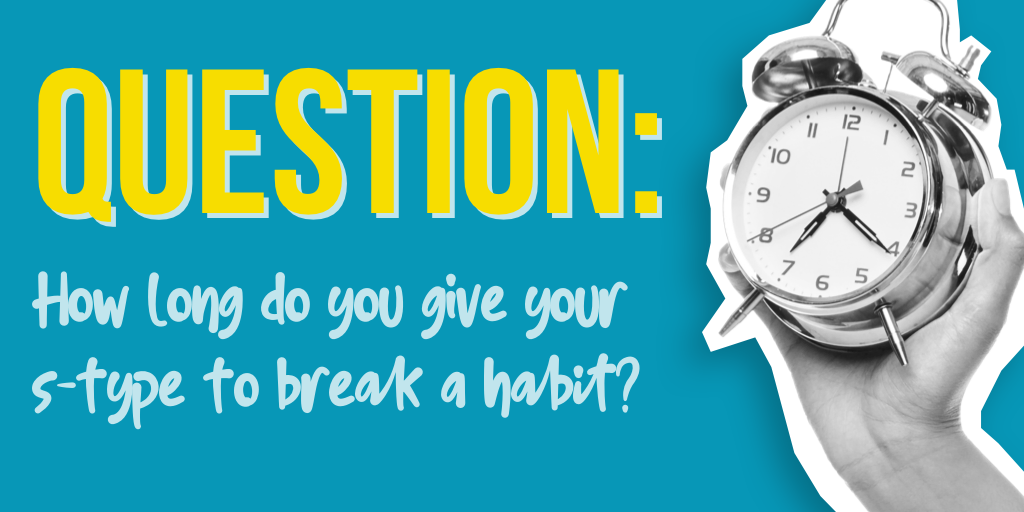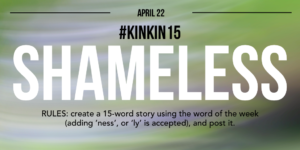I saw this question asked in a group I’m in, and soooooo many people were saying things like, “I just tell them. Any mistake is punished,” or “A week,” or “They say a habit is developed in 21 days.”
Holy fuckballs.
No.
That’s not how this works.
This was my reply:
If you consider the basics of behavior modification, the answer to this question depends entirely on the habit.
There is something going around that says you need 21 days to create a new habit, which is actually not true. It takes 90 or more for even a daily habit.
And to break a habit that already exists (without a high chance of recidivism) will take that same 90 days. Maybe several years if it’s a habit practiced infrequently, and/or one installed through trauma response.
Also, if the habit I want to replace the old habit with is something VERY different from anything they are used to, they first have to learn the proper habit, which takes time, THEN practice it as a habit.
Also, if I want them to break a habit, I don’t “give them” X amount of time. I work with them to find the ways to create better habits, and give them positive feedback when they do.
Some of this can be circumvented through hypnosis, but even then, you will need need to properly reinforce and practice to make it a permanent change, unless they are VERY mentally malleable.
After all, think on how often you have tried to change a habit—like smoking, eating better, getting more sleep, whatever.
A great example: We (my partner and I) wore masks everywhere for over a year. We always had them with us. Now, things are loosening up, and we are forgetting them.
A LOT.
That habit is simply…gone.
Even though it was ingrained for well over 21 days. Well over 90 days, even.
Contrast that with a friend who started using the word “sus” snakily, and then found it as part of their vocabulary, and hasn’t been able to get rid of it, even though they’ve tried.
Or those that use “ummm,” or “like,” when presenting (hello, me!).
It’s not that easy.
And it’s worth understanding the science of habits and how they are made and replace before you start messing with someone else’s habits and punishing them if they don’t succeed.
What are your thoughts?










2 Responses
I agree about the time frame. The 21 days thing is bunk. But I disagree about the use of punishment. The submissives I’ve been with have always loved the idea of being punished. It’s a exciting power exchange. Why not use that kink to work on a bad habit? If it’s a habit that annoys you also then it benefits you both. Sure there will be some that make more trouble just to get punished but I’ve had luck using a kinky punishment and taking it just past the point of pleasure. Everyone has fun while we fix some of those annoying habits.
I didn’t say “Never use punishment.”
I spoke against the flippant attitude that “any mistake is punished.”
I also do do punishment in my dynamics. However, there are ways to do punishment properly if you want to change behavior, and ways to not do it properly. I’ve watched many dynamics that reinforce unwanted behavior because of misapplied use of punishment.